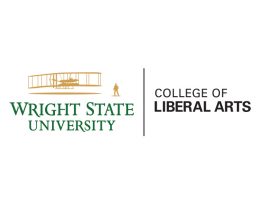Excerpt
 Career advancement skills such as communications, problem solving and critical thinking are the focus of new certificates being offered to Wright State students and outside employees.
Career advancement skills such as communications, problem solving and critical thinking are the focus of new certificates being offered to Wright State students and outside employees.
The certificate programs offered by the College of Liberal Arts are available to all Wright State students as well as employees and others in the outside community.
“Business executives and hiring managers agree that to succeed and advance in today’s workforce, you need to communicate clearly in oral and written form, function well in a multicultural workplace, demonstrate ethical judgment and think critically,” said Wayne Stark, director of workforce development for the Center for Liberal Arts Student Success, career consultant with the Wright State Career Center and program director for the certificate program.
“We are offering innovative certificates focused on those skills that will make people more promotable,” he said, adding that the certificates also will help students get jobs.
Stark said the word about the certificate program is starting to get out to employers in the region.
“We are excited to reach out to some of their employees who have potential for advancement,” he said.
The certificates will benefit employees who may be ready to take a supervisory role but first need to strengthen certain skills, Stark said. It also may spur employees to pursue a college degree if they don’t have one.
There are two levels of certificates.
Career Advancement Skills I offers critical reading and writing, research writing and argumentation, public speaking, multicultural competence and complex thinking.
College of Liberal Arts students will have already completed three of the six Skills I courses through their regular studies. All Wright State students can complete up to five of the Skills I courses with selected general education courses. Currently, 25 to 30 students are within a few classes of getting the certificate.
Career Advancement Skills II provides more advanced coursework focusing on the same skills with an emphasis on problem solving, technical communication and ethical awareness.
“Even if you don’t actually earn the certificate, you get enrolled in the certificate program and it’s something you can potentially put on your resume – that you have worked towards packaging these skills,” Stark said.
View the original story at sidneydailynews.com

 Walking through open doors
Walking through open doors  Adventures await
Adventures await  Wright State to expand nursing facilities to meet workforce needs and prepare more graduates for in-demand careers
Wright State to expand nursing facilities to meet workforce needs and prepare more graduates for in-demand careers  Wright State student-athletes make a lasting impact on local family with more to come
Wright State student-athletes make a lasting impact on local family with more to come  Wright State names Rajneesh Suri dean of Raj Soin College of Business
Wright State names Rajneesh Suri dean of Raj Soin College of Business 